Vloga univerze pri menedžeriranju migrantskih tokov
Naredili smo intervju o tekstu kolektiva Ifanet - »The Role of the University in the Managemant of Migration Flows«. (tekst v celoti objavljen na dnu strani)
Vloga univerze pri menedžeriranju migrantskih tokov
Počasi končujemo cikel Unikompleskov na temo migrantov in izobraževanja, v katerem je univerzitetna redakcija Radia Študent raziskovala vse, od šolanja beguncev med jugoslovansko vojno do možnosti za izobraževanje v današnji situaciji. V tokratnem Unikompleksu bomo, kakor je razvidno že iz naslova, razglabljali o vlogi univerze pri državnih politikah do migrantov.
Ne moremo mimo dejstva, da je akademska sfera, skoncentrirana okoli univerzitetnih središč, pomemben konstitutivni del države, ki za oblasti analizira in interpretira dogajanje po eni strani ter razvija metode in tehnologije, ki naj bi razrešile situacijo, po drugi. Akademiki kot nosilci razsvetljene misli tako lahko obenem pozivajo k humanosti pri delu z migranti, medtem ko razvijajo varnostno-nadzorovalne tehnologije, namenjene ravno razčlovečenju te iste skupine ljudi.
Tu nikakor ne gre za nekakšno shizofrenijo univerze, ampak za učinkovito sodelovanje s preostalimi akterji, ki v zadnjem času složno izvajajo evropsko politiko dehumanizacije in institucionalizacije življenj migrantov, militarizacije ter zapiranja mej, čemur pa se med drugim zoperastavljajo tudi številna antiavtoritarna gibanja. Z enim od takšnih kolektivov, vpetih v solidarni boj z migranti, nam je za današnjo oddajo uspelo narediti tudi intervju.
V oddaji bomo poslušali posnetek intervjuja s člani iz skvota Ifanet, ki se politično opredeljujejo kot antiavtoritarni, avtonomno anarhistčni kolektiv. Gre za kolektiv iz grškega Soluna, ki so ga nekateri člani redakcije uspeli spoznati na »No Border Camp« minulo poletje, na katerem so predstavili besedilo z naslovom »The Role of the University in the Managemant of Migration Flows« in ki ga lahko najdete tudi na povezavi pod oddajo.
Kolektiv je aktivno vpet v boje proti izkoriščanju in državni politiki zatiranja – tudi na področju migrantov. Skupaj s tam zelo močnim, antiavtoritarnim gibanjem in migranti vzpostavljajo »No Border« kuhinje, z migranti skvotirajo stanovanja, podirajo meje in se borijo proti raznovrstnim migrantskim centrom ter represivnemu postopanju države, ki na meji s Turčijo gradi zid, zapira ljudi v koncentracijska taborišča in čolne, napolnjene z migranti, s pomočjo mednarodnih policijskih enot z nevarnimi manevri potiska nazaj na odprto morje.
Vloga univerze pri menedžeriranju očitno ni zanemarljiva. Čeprav se mnogi akademiki borijo za boljši položaj migrantov v družbi, to še ne pomeni, da se lahko iztrgajo iz mašinerije, ki njihov znanstveni doprinos uporabi za boljše razumevanje situacije in kovanje bodočih antimigrantskih politik. Zato je postavljanje lastnega delovanja v širši kontekst zelo pomebno pri osmišljevanju svojih akademskih doprinosov v dani situaciji.
---------------------------------------------------------------------------------------------------------------------------------------
The role of the university in the management of migration flows
Since last summer migration flows, mainly from Syria, towards countries of central and northern Europe have increased rapidly while immigration from other countries such as Asia and Africa continues. To make our point clear: this does not mean that the migration issue just emerged out of nowhere. Migration towards Europe existed long before this. However, the events in Syria gave prominence to the migration in public discourse. Additionally, in this introduction we will not try to analyze the reasons for this, or attempt a geopolitical analysis searching for the genealogy of the flows. We will merely try to illuminate the current role of the university in relation to migration. In a period where the example seems to have changed, the dominant anti-migration rhetoric has been shifted and now speaks of “refugees” instead of “illegal immigrants”, “open type camps” although they are guarded by the army, humanism etc. The presentation is organized into two parts: firstly, how the university, being part of the social factory, sets the goals or helps in the formation of the anti-migration policy in a very direct and tangible manner through research programs, masters etc. Secondly, how the university institution, publicly appears to be in solidarity with migrants by asking students to voluntarily staff the detention centers, by organizing charity events and by supporting members of the academic community who conduct research on migration. All of these tie in nicely with the context of academic freedom of speech and the general context of democracy, resembling the two sides of the same coin, which is the management of migrating population from the state and the capital.
The capitalist university
Universities are not institutions where independent and autonomous knowledge is produced. They seem to be far away from the notion knowledge for the sake of knowledge. On the contrary, all capitalist relations are reproduced within the university. The consistency of science and technology with capital needs can be observed almost from the beginning of their institutionalization. The university is a dynamic part of capitalist relations since, from the one hand, it streamlines the workforce according to capitalist needs and, on the other hand, it is the means of organizing research to produce useful knowledge for bosses. The university operates as a part of the production process. Aligned with market needs, it produces specialized workers and scientific knowledge (or at least this is where it aims although it does not always achieve an efficient connection with the market). The educational system, however, does not remain stagnant but restructures itself constantly. At the same time, the higher education bodies are changing to serve the demands of the capitalist accumulation and the reproduction of the capitalist relations. For this to be achieved, the university is getting gradually privatized and the cost of studies is transferred to the students. A short note: We do not preach free and public education, nor do we believe that the privatization of the university is necessary for the external financing of research. Public universities and research have managed to coexist in harmony until now. Contrariwise, all of this is part of the continuous process of restructuring, in relation with the different social environments, to achieve the readjustment of universities in favor of capitalist accumulation.
The university itself as well as the various scientific research centers (more or less related to the official academic bodies) besides the state funds which are being reduced, are financed by private bodies and companies in order to produce research results which are useful to the reproduction of the capitalist relations. This process creates a bidirectional and interdependent relationship between academic research, state and businesses. The knowledge centers i.e. the universities through masters and doctorates and the independent research centers which are staffed with professors and postdoctoral researchers are those which state, army, national and supranational institutions and businesses invest on, materially and ideologically. The goal is, besides producing knowledge which is useful for the commodified world, to bind the technological and scientific community of each country with the state, the army and the security complex. In this way, scholarships andsponsorships are provided from the one side, and epistemological feedback is provided from the other.
The first research centers within the educational system appeared during the 1930 financial crisis, presenting solutions for the management of the situation. They hadn't increased in number till the 70s when they proposed ways of organizing labor for the benefit of the bosses and provided advice to the states regarding their international relations. Since then, they have dealt with a wide range of topics and at some degree they have even achieved core state policymaking in matters such as the management of migrant movement, border control, its militarization etc.
All the above, make the relation of the academic institutions with the state and the bosses clear. Various schools, professors, postgraduate or research programs are financed by companies, NATO or national armies in order to produce knowledge and innovations which will be useful for their various goals. Of course the produced knowledge is not intrinsically good or bad, we do not wish to demonize it. A new technology can be a mixed blessing, useful in the treatment of a particular illness (always produced within the context of the capitalist system), and simultaneously malicious in the hands of the army. We do not put forward neither aphorisms nor wishful thinking. We are obliged, however, to see the historical context within which each research program takes place, who finances it and for whom and we have to consider the continuities and the discontinuities between this apparently neutral knowledge and science and the army, the state, the bosses. Only in this way will we be able to illuminate this relation in the present and attack it. In any case, numerous examples exist which justify why we should be at least cautious. The following examples are drawn from the book “Now we are all bastards. War, science, academia and their role in the Greek example” which was published in January 2016 by the group burglars of student culture.
Before we get to the point though, we have to cite some information about the organization and the main institutions which form and organize the anti-migration policy at a European scale, in order to illustrate their relation with the various research programs conducted in the Greek academic institutions which deal with topics such border safety and the management of migrants. The foundations of the European border policy can be searched in the European Research Program for Safety (ESPR) of 2004, which was embedded in the 7 th framework program for research and technological progress applied between 2007 to 2013. During these years the institutional infrastructure for the support of research regarding military security equipment is formed and a bit more than a billion euros is spent on various research programs which are conducted by arm companies in cooperation with academic institutions. In 2005 FRONTEX was formed and under their supervision EUROSUR, activated in 2013, began its operation. This system essentially processes all the information provided by the border guards of EU member-states and by FRONTEX missions and paints the detailed picture of migrating populations. Additionally, we mention the Common Security and Defense Policy (CSDP), the military branch of the European commission, which was upgraded in 2014. On of its missions is to finance research and evolution of military equipment (for example drone fleets) and to make the necessary statutory adjustments for enabling the use of this equipment in the urban environment too. Finally, the “Horizon 2020” predicts a bit more than 4,5 billion euros to be spent for the further progress of the European Border Management System through the Internal Security Fund. The Aristotle University of Thessaloniki held a session last June in conjunction with the European commission, aiming to inform and support AUTH researches in relation to European Research Council (ERC) program, which will be running within the framework of the Horizon 2020 program. This means more billions and more research programs.
Three examples of research in Greek Universities
I JASON
Scheduled: 2013-2015
The research was conducted by the laboratory of Photogrammetry of rural and surveying engineering school of national technical university of Athens. According to the official description of the program “it attempts to look into technologies in the field of engineering in order for a smart system, that combines satellite systems, telecommunication technologies, photogrammetry algorithms, to be implemented and for the extraction of measurements from collections of images that are obtained by ground and aerial receivers so that a better surveillance of the borders can be achieved.” In addition “for the support of the member states in their efforts to reduce the numbers of illegal immigrants that enter the EU”.
The coordinating company of the research was SpaceHellas. The national technical university of Athens also cooperated with IridaLabs under this program. These two companies have been the pillars of another program, called ACRITAS that was run in 2013, whose purpose was the manufacturing of an integrated system for the control of the borders from space. It is worth noting the relationship between IridaLabs and the academic community, as the company was set up by researchers of the University of Patras and is dealing with the production of face and movement recognition technologies. Finally, additional associates in JASON program are: the electronics laboratory of the Physics department of the University of Patras and the mobile radio-communications laboratory of the Institute of communication systems and computers (Nationaltechnical university of Athens)
ΙΙ. Wall against migration (fence in Evros)
Years of Construction: 2011-12
The construction of the fence in Evros is included in the “integrated program for the management of the borders and the confrontation of illegal immigration” as it is officially called. Apart from the erection of the fence, the plan includes the construction of a series of control technologies, such as the supply of motor vehicles equipped with thermal cameras and the installation of a radar system for the surveillance of sea borders.
The construction of the fence and the rest of the control technologies was co-funded by national resources and the External borders fund, and their implementation was done fully at National technical university’s laboratories. If we take into consideration the participation of this institution in JASON and Poseidon programs, a “map of interests” emerges around the army and industrial complex, in which the academics of the institution can take pride in their accomplishments.
ΙΙΙ. POSEIDON
Finally, another research program of the national technical university of Athens that has recently published the results of its research, is POSEIDON. According to the presentation of the program, it is suggested, as an answer to “illegal immigration through the sea, trafficking and illegal fishing”, “the development of a smart, cheap and viable system of surveillance of marine space, using arrays of cameras and sensor networks. The system would locate, watch and focus on water crafts and passengers even in lack of light, rough sea and other weather conditions, and it would notify the authorities in time. Moreover, it can be placed in inaccessible, remote areas.”
*
Conclusively, we believe that there is no neutral university, that focuses solely on knowledge. The university is an integral part of the capitalist machine. Its connection with programs like the above, with the production of knowledge and technology for the border military is not a deviation from its main function, but an integral part of it. The technology that is produced is neither neutral, norinnocent as some postgraduate, doctoral and professors might say. The technology that is produced by these programs, funded by the military, FRONTEX, NATO etc. favors its funders, and it does nothing more than enrich the ways in which the death of migrants is organized right now at the inland and water borders of Europe.
All of the above explains why it seems funny or even tragic to us as students when sometimes throughout the academic year we receive emails in our inbox, asking for volunteers to come to detention centers or inform us that the institutions are in solidarity with the migrants. However, we do not believe that the institution of the university suffers from some kind of bipolar disorder. Both the bargain described above and the public charity rhetoric, are tied with the state (anti) migration policy, which manages to contribute to deaths at the border by military means while preaching the gospel of "refugee crisis" and solidarity.
Here are a few words on charity that is promoted as solidarity in the university
Since summer 2015, the official rhetoric of the greek state regarding migration has drastically changed towards a more humanitarian direction. The “illegal immigrants” were given the name “refugees”, to whom, greek people, should stand in solidarity according to the well-known phrase “our grandparents were refugees, our parents immigrants”. Thus the national unity is reconstituted in the name of “solidarity” that conceals all the imaginative ways in which the Greek businesses profit from the immigrants by participating in a large chain of economic exploitation, that begins from the cops at the borders and ends in Greek shops on the islands, while it affirms and consolidates the separation between locals and foreigners, between what is familiar and what is not. It is from this separation that the various charitable actions that emanate from the university, are initiated.
In a recent announcement, the university informed us that “in the context of the social role of the institution, it is decided to contribute substantially to the struggle for providing assistance to the refugees during their stay in our country.” In this context, many e-mails have been sent since, that mainly sought for volunteers. Indicatively, in a recent e-mail, the university was looking for volunteers to install wireless networks in reception centers. In an earlier announcement, the university community was urged once more to voluntarily participate in a children’s activities structure at the detention center in Diavata, that was set up by the university in cooperation with the municipality of Thessaloniki. Later, we were informed by the university that “the stay of refugees in Greece will not be over soon and we will be back with a new request. Please do not send any other applications”. Moreover, since the beginning of the year, almost every Friday, the concerts given by the State orchestra of Thessaloniki held at the ceremonial hall of the university, were about “solidarity”, where food supplies for Idomeni were collected. The irony is that while the university campus restaurant was sending portions of food to feed the immigrants at the port of Thessaloniki, it was prohibiting immigrants, unemployed and precarious workers from entering the premises. Finally, a number of progressive academics have come to the foreground on the occasion of the migrant issue by organizing conferences, surveys within undergraduate courses etc. More will be noted on this topic later on.
One might wonder, why do we point out all these university actions regarding immigrants when much more weighted things, such as capital flows to and from the institutions, are setting up this anti-migration policy? It is because we do not believe that the notion of charity is something separating or confrontational to the anti-migration policy. The latter aims to consistently control and manage the movement of immigrants, so as to safeguard the state and capital interests. The “illegal immigrants” may have been renamed “refugees” and the humanitarian rhetoric may prevail in the public domain, however the militarization of the immigration management system lately, with the police and the army taking over a large chunk of it, clearly shows that no matter how charitable itmay appear at a rhetorical level, the anti-migration policy’s core aim (with the separations that it imposes, the illegalization of immigrants and the repression) is to ensure that migrants will remain a disciplined, inexpensive and easily manageable workforce. Philanthropic actions can make the conditions of this management more bearable to a certain degree, by responding to the staple needs of the immigrants, but on the other hand, they’re instituting and normalizing charity as another name for solidarity. “Solidarity” does not bother and is promoted as long as it emanates from the state, the university, the NGOs and all kinds of shops that drain funds and profit at the expense of the migrants. It does not bother as long as the unwaged labor of volunteers is baptized as such, the volunteers that, even though they might have a humanitarian perspective of the issue in the first place (where migrants equals victims), they do not try to set up common struggles with the migrants for the revaluation of life but they contribute to the shift of the living cost of migrants from the state to society. This kind of “solidarity” is also welcome as long as it strengthens communities formed under a national notion, that evangelize national solidarity of the people who “know how it is to be a refugee”, hiding the exploitation of migrants and ratifying the separation between us.*
Several research programs, mainly those of humanitarian studies, have also managed to enhance the charitable profile of the university. Lately, a shift has been observed in research of social sciences towards more sensitive issues such as migration, gender, social movements. This change does not mean that the academic community is truly concerned about these issues. On the contrary, it reflects to a large degree the current anthropological trends. Anthropology in line with post-colonial studies is shifting the research focus from colonies to metropolitan areas and mainly to European regions, where there is a lot of information. At the same time, anthropology is trying to find a social and historical orientation, in a context that the object is losing its exotic, unfamiliar or remote anymore and is assessing the characteristics of a social and cultural phenomenon that is closer to the social and historical reality of the researcher's community. A result of the above is the appearance of a rich variety of anthropological research that explores the subjects and the groups, their ways of organization, their resistances, their population movements and social struggles. In relation with these trends, Greek universities can exhibit a wide variety of anthropological and sociological research that more persistently lately, due to the increase of migration flows, has placed migrants and forms of solidarity around them under the spotlight of their investigation. Opposite to the technocratic research, things are much simpler in the field of anthropology. There are students that are willing to work on a voluntary basis without funding and equipment. You just need a car and a notebook and these are your toolkit for field research at Idomeni. As a consequence, papers are uploaded on Academia and professors build their careers at the expense of migrants.
And what do we mean by that? The previous academic year both the Aristotle University of Thessaloniki and other departments of Anthropology in the National and Kapodistrian University of Athens and in the Aegean University, provided courses such as political anthropology, where students could gain higher grades if they could take part in specific projects for local anthropological research in Idomeni and in relocation centers for migrants. In these projects, students under the supervision of the academic staff had to come in direct contact with the migrants, the local society, the volunteers and furthermore with the assemblies that are in solidarity in order to draw conclusions as to the migrants’ situation, their personal testimonies about war and movement, their assimilation by local society and the reasons that drive political collectives to declare their solidarity or even to share the same community with immigrants. These projects by placing migrants under close examination, create the illusion in academic circles that they also contribute and help to deal with the “migration crisis” (they actually help employers). They are allunder the false impression that the more they write the more help they offer. They invite the academic community, students and those in possession of a doctorate degree to contribute with their work to raise awareness while social sciences and humanities have changed their main interests in research. By labeling anthropological research “solidarity” and producing knowledge through research, they consider that they feed back into social movements in the same way that collective procedures do. In reality we can not overlook that whether an academic teacher is involved in social movements or not, this production of theory that sees social movements as interesting material for further investigation and it does not belong to our procedures. We stand apart from procedures that aim to interpret our collective contents and our practices via masters or PHD programs and
individually capitalize our collective experience. Let’s not forget that there are progressive academic circles that promise a career.
The logic that preaches an intentional interaction between academy and social movements has in its mentality a clear separation between theory and action. That means that academics produce theory and movements produce the action. For us, movements do not need academics who come up with the solutions and no theory is necessarily needed before an action. Movements are particularly concerned about their way of acting and based on their collectively processed experience produce
their theory.
Here is an answer to the question why are we so annoyed by these seemingly harmless research compared with the technocratic type of research that we analyzed in the first part. They too aid in producing knowledge for the strict management of migrants. Moreover, an issue of comparison of the results from each research can not be bracketed, not even a separation of sciences in good and bad since anthropological/sociological research provide feedback for the state migration policies in their own way. Quantitative and qualitative research, anthropological analysis regarding social groups... every research that examines migrants, movements and those who are in solidarity are subjects that interest the state offer a means to glance at the resistance against it. All these research and projects, regardless if the researcher has an intention or not, are always under the supervision of the state and the capital and contribute more or less to formulate not only migration policy but also state policy regarding the management of social movements.
Finally, academia may really change migration policy promoting the establishment of favorable terms that have to do with management of migration crisis. Even on that direction we can not recognize this as an argument in favor of its relation with the movement. It can really be a fact that academics are trying to formulate an anti-migration policy with better conditions. Nevertheless, social movements in which we exist do not have the intention to underestimate migrants and just give more humanitarian characteristics to their problems. Because we know that even in that way their management will promote their devaluation, reproducing the same social relation creates our devaluation. The overcoming of the “migration crisis”, like they call it, on these terms will only be in favor of the bosses. Our main purpose is to come together and fight alongside migrants against our devaluation. Based on this logic we draw the conclusion that an external academic perception on society ca never find a cozy place among us.
In conclusion, we tried to point out the different aspects of the direct relation between academia and the anti-migration policy of the Greek state. To show how objective science builds fences and invents new technologies for more effective management, control and repression of the migrants' movement at greek and european borders through research programs at greek engineering schools. The university, being an inextricable part of the social factory, produces technology and knowledge which is used by the state and the bosses for the devaluation of migrants. The anthropological/sociological sciences do the same. Progressive academia research may promote a radical overview on the topic of migration, illuminating it from a point of view which seems very similar to ours. However, all this research, which coexists harmonically within the academicinstitutions with staff who manages death at the borders, does not stop being used by the state as it enriches its knowledge about migrating populations and their resistances. All this knowledge is an armory for the state in forming their anti-migration policy. Somewhere there is a line that should be drawn, which often becomes vague, between progressive academia and the social movements. On the one end of it stands the university, which shows its humane face by calling students to participate voluntarily in the camps and by organizing solidarity feasts earning money from the tickets. Ending this presentation, we hope all this becomes a small contribution to the discussion of the movement about the topic of migration, enriching the contents and forms of our struggles at the side of the migrants.
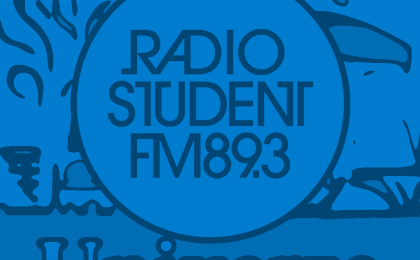

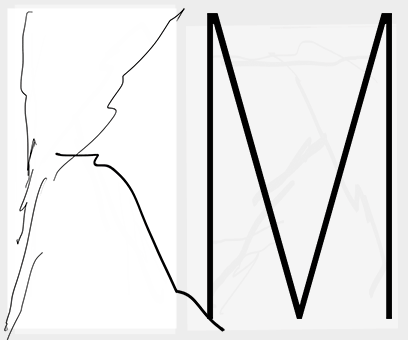
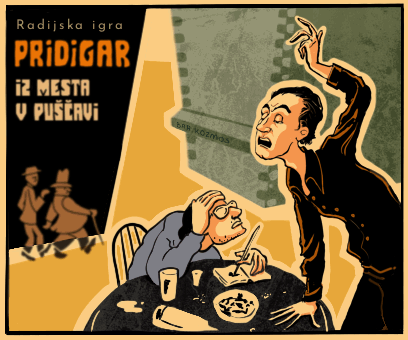
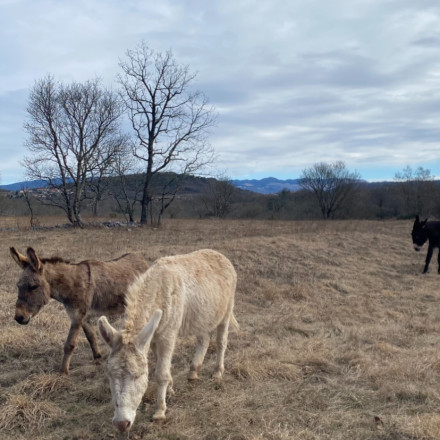

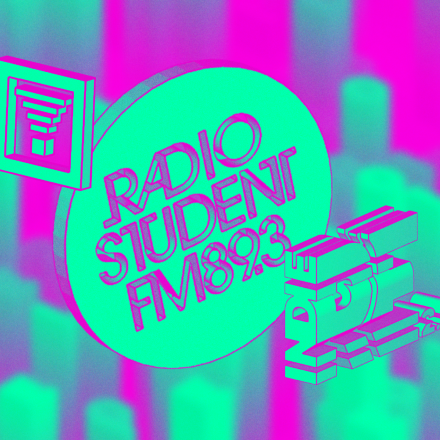

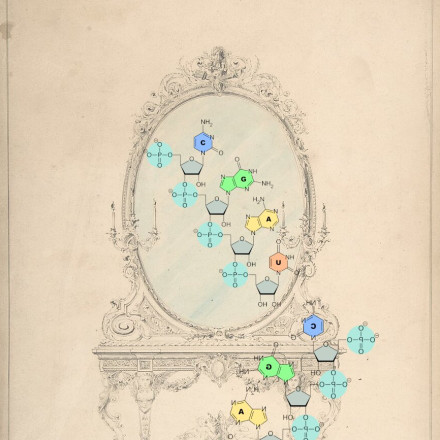
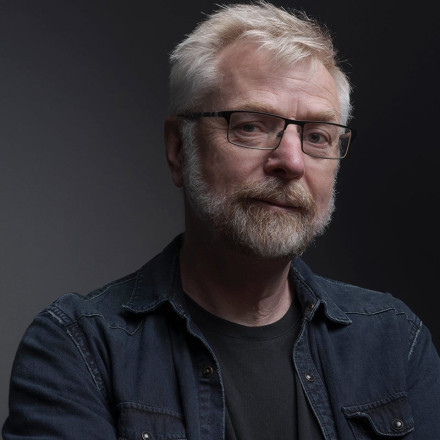

Dodaj komentar
Komentiraj